Interview: Author & Poet Johnathon Williams on 'The Road to Happiness'
|
|||||||||||||||||
|
The scholar John Rodden calls the literary interview a “fully-fledged genre.” I used to be skeptical, but after assigning my students at The College of Saint Rose to speak with an author, I’m more inclined to think the literary interview qualifies as a distinct form of performance. I put out a call on Facebook and Twitter: Would you speak to a college student about your book? I asked. Sure, they said. Review copies were sent, students selected authors, read and researched their work, and asked questions. - Daniel Nester, Contributing Word Editor |
AUTHOR JOHNATHON WILLIAMS ON ‘THE ROAD TO HAPPINESS’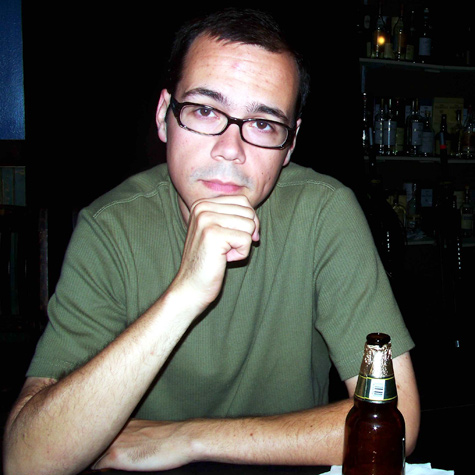 |
||||
INTERVIEWED BY
|
Johnathon Williams: poet, programmer, editor, parent, and author of The Road to Happiness. With poems such as “Mossing” and essays on the hungry undead of Wal-Mart, Williams offers a quaint-but-slanted perspective to flyover-state life. The landscapes he portrays make you feel as if you were growing up with him and going through his trials with him. The language Williams chooses brings to mind the classic writers of the Twentieth Century: classic, tasteful, and full of genuine intention. On the phone, his voice has a charming Southern twang (he was born in Eudora, Mississippi and lives in Arkansas), as he gives a congenial interview discussing his passion for poetry, the challenges of getting published, and the everyday struggles of being a writer. MCKENZEE GREENE: So, when you were writing The Road to Happiness, was its intention to be published? JOHNATHON WILLIAMS: Getting a book published is fairly a crapshoot. The way it generally works—nowadays anyway, if you want to get a book of poetry published—what you do is: first, you write a book of poetry, then you start sending it to contests. You print out 20 copies, and then you write 20 checks for these entry fees, for like 15-20 bucks each. That is really the standard procedure for submitting a book of poetry. So it gets expensive in a hurry. The average cost is like 20 bucks per book, even if you just send it to ten contests a year, that’s 200 dollars. GREENE: That’s crazy. WILLIAMS: It is crazy! But that is what almost everyone does, especially if you come out of an MFA program. One of the reasons they do that is because it’s so hard, you know, to get creative writing teaching jobs, and those jobs are so hard to come by, you want to be able to say on your CV that you won a big prize. GREENE: On your website you note, “My first book, The Road to Happiness, just hit the shelves. It’s a book of poetry. Try not to hold that against me.” Are you talking about how difficult it is to make yourself a poet, or are you speaking about the general stigma that is associated with it? WILLIAMS: Both, I guess. It’s such a strange thing to do these days. Writing any sort of literature these days, whether it’s poetry or fiction, or even personal essays. Hell, you could put the same amount of time learning to program iPhone apps and probably retire before you’re 35. It’s an odd thing to do, but particularly poetry. If you think people barely read literary novels, you can multiply that times a thousand when it comes to poetry. Nobody reads poetry! So, to be a grown man who is responsible for two kids and a wife, and to have like…student loan debt because I just spent four years writing a book of poetry… Right? That’s ridiculous. It has to be! And I’m going to do it again, and lots of people do, too. GREENE: It’s such a beautiful thing, though. I’m only a freshman in college, and we read a lot of poetry. We read quite a bit of Robert Frost, and I saw there was a similarity between the two. How do you feel about being associated with a poet like Robert Frost? I read your book before I read the foreword, and I noticed that Katrina Vandenburg had noted that. WILLIAMS: Well, for one thing, I love Robert Frost, so it’s very flattering for anyone to ever compare my work to his. That does wonders for my ego! It’s one of those things I try not to think about, in terms of…I know who my favorites are, and obviously your favorites always influence you, but I try not to think too much about it directly. I think that if I’m afraid of the juju. I try not to think about my own process, or where it comes from. I don’t know if that makes sense, but I think that trying to understand that will, in some way, ruin it for me. There’s obviously a craft, and one of the things you do as a writer is you practice, and practice, and practice. It’s just like being a carpenter, and I believe that. I’m not one of those people who likes to make it all too serious. At the same time, there is something mysterious, and I don’t understand…and if I do, I feel like I’ll stop doing it. GREENE: My favorite of your poems was “Mossing.” My favorite line was, “A man in the city pays twenty bucks a pound, one burlap sack stuffed full buys baby’s medicine. Black pines edge the pasture where families pull apart.” Was that something that was happening within your community, or was it a reflection of the culture in your community? WILLIAMS: Well, some of my relatives did that. So when I grew up, my father was the editor of the town newspaper, and my mom was—I don’t know what they call them now, back then they would call them beauticians, I think now they call them hairstylists—in this little southern town we lived in. And, they did ok. We weren’t rich or anything, but my brother and I always got a lot of toys on Christmas. But, we had these relatives who lived without running water, on dirt roads that were so bad you’d have to park and walk a mile because you didn’t want to risk your car. A couple of times, my father and I would go out I wanted to watch cartoons. I remember a couple of Saturday mornings where my father would take my brother and I would get out early out of bed, and go out in the woods and help them. And what we would do is literally gather moss. My brother and I were indoor kids, and we didn’t want to do it; we lived near the outdoors, but all we wanted to do was stay in and play video games. Here we are, it’s like being drug into another century! We are going to spend all day in the woods with people who are gathering moss to sell. GREENE: You programmed a popular Safari extension called Tweedact. Did you teach yourself programming, or was it a passion that’s secondary to writing? WILLIAMS: It was definitely secondary, and I did teach myself. My dad got me a Commodore 64, one of those computers you had to plug into a television. When I was a kid, the only way to do anything was basically to learn basic programming before graphical interfaces and all that nice stuff. And I was always much more interested in books than in writing. In a perfect world, I would never program anything ever again. It is interesting, and it’s not too bad. It’s not digging in a coal mine, so I try not to complain about it too much. When I was a kid, it was like solving a puzzle. And when I got older, I tried making a living as a writer. I was a freelance journalist and a newspaper reporter for a while. I did quite a bit of writing about technology because the tech magazines would pay more. And then when you have a family, it’s so hard to begin as a writer. You have to be so talented, or so lucky, or some combination of both, really. I kept up kind of with programming, and over a period of time, when I saw where the newspaper industry was heading, I went back to get my MFA. I knew that, number one, getting my MFA was an incredibly irresponsible thing to do for a person responsible for a family, just financially. There’s so much time and money, especially when you’re doing poetry. So I decided to stop freelance writing for money and start programming for money because the pay is so much better. So, at the same time, I do…part of me does like programming, like fun little ideas. I just thought Tweedact would be fun to build, so I built it, and put it out there, people see it, and then they’ll have you pay to do something like that. So I don’t know. I guess the short answer is that I have really mixed feelings about programming. Mostly because, you know, I spend almost all my time now doing that. Because it’s how I get paid! But, I would much rather spend all of my time reading and writing. GREENE: You mentioned your kids. Would you encourage them to immerse themselves in a world of writing and poetry? WILLIAMS: Absolutely not. I hope they all grow up to be investment bankers. That sounds cynical, and doesn’t seem completely sincere. My dad was a writer. He worked for a newspaper and that’s how he made money. But he wanted to write novels. And he would do that, but never published one. My mom was an artist—I mean, she was a hairstylist—but every night she would come home and do these amazing pen-and-ink drawings when I was a kid. She would win prizes at the state fair. I knew that he would rather be writing, and she would rather be doing a painting. That was their passion, and then they had these jobs that they had to do to make money. But they had this passion that they knew could never be fulfilled. It must be so frustrating. I know I certainly feel that way, and I know that they did. And, of course it’s rewarding—poetry, art. It adds a dimension to your life that you can’t imagine living without. But, at the same time, you imagine your kids growing up, and living with that frustration, and worrying about money at the same time. Of course I want them to be passionate about something and have a full understanding of the world, but having some interest in some kind of art like poetry or music. But at the same time, our family is overdue for an investment banker. If for no other reason than the next generation can afford to be artists. GREENE: Do you find on your literary journal, Linebreak, which you co-edit, that there’s a breadth of poetry? WILLIAMS: We get great stuff at Linebreak. And we turn away good poems all the time because we only do one a week. That’s only 52 a year, and we get an enormous amount of submissions. So, we do turn away a lot of really good poems. We turn away poems that I have no doubt will be published someplace else, and I’m sad that they can’t, but at the same time we get a ton of crap. We get things from prisoners—not that prisoners can’t write great poems—, we get things from people who have not studied their craft at all, things from people who haven’t read a lot of Linebreak at all, and it’s just, they have these sort of unstructured lamentations about what to write in their lives. And I know from other editors that’s really common. GREENE: Where did the inspiration from Linebreak come from? WILLIAMS: Oh, just the fact that, at the time—it’s actually kind of still true—but at the time, every other online journal just sucked. I mean, it wasn’t that they were posting bad poetry; there are lots of online journals publishing good poetry, but in terms of just like, how the journals were designed, and how they were presented. How they worked as online publications was just pathetic! Awful! It’s still a problem with poetry, to some degree. Then and now a lot of online journals still publish issues. Right? Like, four times a year… Still online journals, four times a year, two times a year, come out with like 20 poems. Which makes a lot of sense on paper, like it makes a lot of sense to do 20 poems for an issue, because paper is expensive! If you save all the poems up, you’ll be able to print one issue. You can save money in shipping. Because, as a technology, that’s how paper works. So to wait six months online, and to throw a bunch of stuff out there at once, uh, is just silly. Issues are unnecessary online, in a traditional sense. Why not post a poem as you get a poem? It just makes sense. GREENE: Right. Do you feel like the success of poetry will be greater on the Internet than publishing on paper? WILLIAMS: You know, I don’t know. Poetry is so strange. It should be…and you can argue that poetry should be this perfect literary form in a digital age. It’s short, incredibly brief. It could be read on a smartphone, or whatever. Or shipped on a Kindle, all that good stuff. And yet, nobody reads it. At the same time, the best-selling books of the last many years were the Harry Potter series! Which is MASSIVE. Those are big books, right? But, I don’t know if we’re going to know if it will open up to a number of readers, and I don’t really know if that matters. Poetry has always been kind of a niche concern. I don’t know. I guess [in the] 19th Century there were best sellers of poetry, but those people were really bored. [laughs]. GREENE: I have one more question for you. If you could make a difference in anyone’s life with your writing, in what way would you like to do that? WILLIAMS: Oh, God! This is going to sound so selfish but it’s absolutely true. If I could make a difference in anyone’s life with my writing, it would be in my own! So that I could find some way to spend the rest of my life doing nothing but reading and writing. |
||||
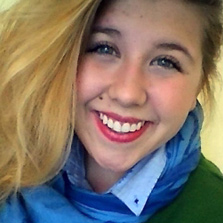 |
|||||
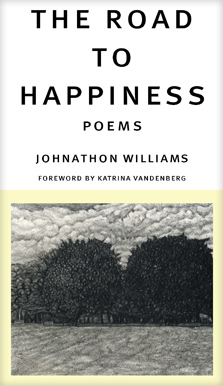 |
|||||
|
Visit Johnathon Williams… johnathonwilliams.com |
|||||









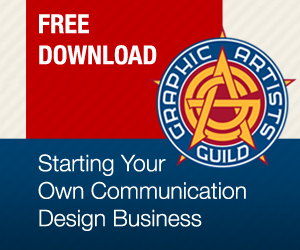
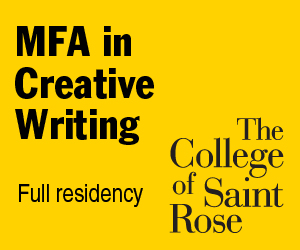
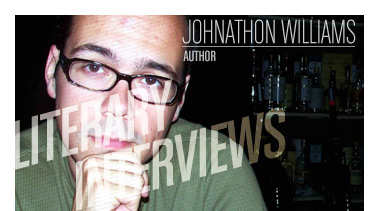
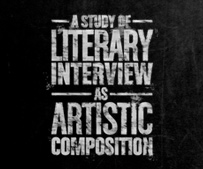














 Stated
Stated
Reader Comments